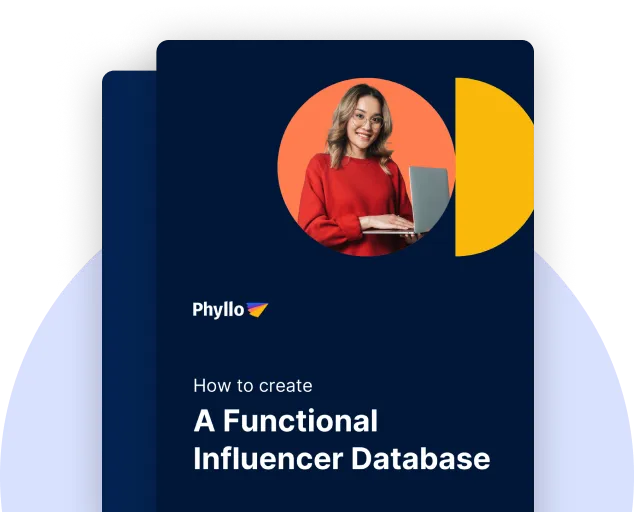Influencer marketing is a very effective form of marketing your products to your target audience. In fact, 1 in every 4 marketers currently leverage influencer marketing and swear by its impact.
Despite the effectiveness of the strategy, marketers still find it hard to determine the ROI from their influencer marketing campaigns, so much so that 28.1% of brands consider it as their biggest challenge.

This convolutes the ways you determine how much to pay for your brand sponsorships. In this blog, we will educate you on:
- The importance of calculating the costs of your influencer marketing campaigns,
- Key factors affecting influencer costs,
- How to calculate your influencer marketing costs,
- Influencer pricing on top social media platforms, and
- Types of influencer compensation models
Importance of Calculating Influencer Marketing Costs
Here are some reasons why measuring influencer marketing spend is important for your influencer collaborations—
ROI Assessment
You can assess the influencer marketing ROI by calculating influencer expenses. You may evaluate the efficacy and efficiency of your influencer collaborations by contrasting the costs invested with the outcomes realized, such as improved brand exposure, engagement, website traffic, or sales.
Identification of Cost-Effective Opportunities
You can find more cost-effective partnership possibilities by being aware and understanding how much each of your influencer collaborations may cost you. This enables you to maximize the effectiveness of your ads and optimize your spending.
Negotiating and Entering into Partnership Contracts
Discussions about contracts and negotiations are typically based on an understanding of influencer rates. You can have meaningful discussions with influencers about fees, deliverables, and campaign terms when you are aware of the standard pricing in your industry.
Benchmarking for Better Campaign Planning
Knowing your influencer marketing spending can enable you to compare your expenses to industry norms. You get to determine what other brands are willing to pay for influencer partnerships and learn about market pricing. This information can help you create comprehensive campaigns that align with your budgetary restrictions and rationalise your business goals.
Key Factors That Affect Influencer Pricing
It is not easy determining which influencer will bring what value to your brand. Partnerships and, more importantly, relationships depend on how much you're willing to pay creators who perfectly suit your niche. This is why influencer pricing depends on a number of factors—the most important of which are outlined below:
Influencer Marketing Platforms
Influencer pricing is heavily influenced by the latter's social media platform of choice. For example, if the influencer you select has a sizable following on Instagram and typically uses it the most amongst other social media platforms, their charges for creating sponsored content on Instagram will be greater than on other apps.
Type of Influencers (Micro, Nano, etc.)
Size does matter—in fact, it matters most of all. Most businesses pay influencers based on their follower counts. Influencers are grouped based on the number of followers they have as follows:

- Nano influencers (1,000-10,000 followers)
- Micro-influencers (10,000-100,000 followers)
- Mid-influencers (100,000-500,000 followers)
- Macro influencers (500,000-1 million followers)
- Mega influencers (1 million or more followers)
The bigger their audience base, the higher the chances your brand's content reaches more people.
Influencer Relevancy
Influencers focusing on a certain industry or niche could demand a greater fee. Brands targeting a specific population or demographic will benefit infinitely more by partnering with a creator with niche expertise and a focused audience base. Consequently, the influencers may charge higher depending on how much expertise and authority they have in their particular field.
Campaign Duration
Influencer fees are directly impacted by campaign length. A one-time association, such as holding a contest or a promotional giveaway, will be less expensive than a lengthy endorsement agreement. When choosing your budget, creating a risk model that details the best-case scenario, specifically for long-term relationships, can be useful.
Influencer's Reputation and Endorsements
This is an extremely subjective criterion; however, an influencer's charges may be influenced by their prior brand endorsements and relationships. A nano-influencer may demand more money than a micro-influencer if they have already collaborated with well-known brands from your niche or have a portfolio of successful projects because of their track record and perceived value.
How to Calculate Influencer Marketing Cost?
If all the contributing factors discussed above are making you feel overwhelmed, here's a formula that can help you accurately estimate your influencer marketing cost:
Presenting CPM or cost-per-mille. This determines how much money is required to generate 1,000 views from a particular target audience.
Here is how you calculate CPM:
Cost of collaboration / Reach of influencer * 1000 = CPM
Once you have a fixed CPM, you can calculate the cost of each influencer partnership as follows:
Reach of influencer / 1000 * CPM = Cost of collaboration
Next, let's look at some steps you may take to calculate your influencer marketing costs more accurately.
Identifying your Influencer Marketing Goals
You can start by describing your campaign's goals in detail. Decide what you want influencer marketing to accomplish for you, such as raising brand awareness, boosting website traffic, generating leads, or increasing product sales. Your budget allocation can, thus, be guided by your understanding of your influencer marketing objectives.
Analyzing Engagement Rates and Audience Demographics
Engagement rates are one of the most important KPIs of an influencer marketing campaign. Calculate the number of likes, comments, shares, and saves on your preferred creator's posts before engaging them in a collaboration. Also, look at the historical performance of an influencer's content to detect any engagement fluctuations present.
Moreover, your product will not be relevant to anyone and everyone. You should validate the age, gender, geographical location, interests, online behaviors and other demographic and psychographic parameters of an influencer's audience base. You should also assess whether the content created by the latter is relevant to your brand goals and values.
Estimating the Cost Per Influencer Based on Research
Research here indicates the various factors that affect influencer pricing. You must include the different variables that drive influencer pricing, including the number of followers, engagement rate, reach, content kind, exclusivity, duration, and complexity of the campaign.
Based on these elements, you may evaluate whether the cost of influencers aligns with the value they can add to your campaign. Calculating the CPM here might come in handy.
Accounting for Additional Expenses (Production, Logistics, etc.)
You must consider extra expenditures in addition to influencer payments, such as those associated with production, shipping, giveaway items, or influencer event attendance. Include these expenses in your overall influencer marketing budget to ensure thorough preparation.
Monitor Campaign Performance to Determine Final ROI
Determining your final ROI is paramount to calling your influencer campaign a success. For that, keep tabs on the effectiveness of your influencer marketing effort and analyze its performance frequently.
Monitor your KPIs and contrast them with the associated costs. You will, thereby, be able to accurately determine the return on investment of your influencer marketing efforts and optimize your next campaign to do even better.
Influencer Pricing on Top Social Media Platforms
The platform you plan to leverage for your influencer marketing efforts heavily impacts how much you will pay for creator partnerships. Let's see how much social media influencers on Instagram and TikTok may charge for collaborating with your business.
Instagram Influencer Pricing
The relevance of Instagram in influencer marketing has led to a rise in prices charged by influencers to promote businesses on this social media platform. The average cost of an Instagram post in 2021 was $1170, while that for an Instagram Story was $906.

While the Instagram influencer marketing cost for posting your products on their profile varies, the charges mainly depend on how many followers a specific influencer has. Given below is a table that correlates the type of influencer (based on follower counts) and their rates.
Prices also depend on the type of Instagram post you want the creator to make. Most instagram influencers have their press kits, which define prices depending on campaigns.
Here is a list of formulas you can use to determine the charges you have to pay your influencer, depending on the type of post or content you want them to create —
TikTok Influencer Pricing
TikTok skyrocketed to fame during the pandemic, becoming the second-most downloaded app worldwide in 2022 and shows no sign of slowing down. No wonder businesses are facing fierce competition in TikTok marketing, and influencers are charging thrice the charges for an Instagram post.

The average cost for a sponsored TikTok video in 2021 was $3514. While going viral on TikTok and receiving superior engagement is easier than on other social media channels, the rates of an influencer collaboration still heavily depend on follower count. Given below is a table that correlates the type of influencer (based on follower counts) and their rates per TikTok video.
Using a pricing calculator, like the one from Influencer Marketing Hub, is one of your best bets to estimate how much you have to pay your chosen Instagram or TikTok influencer. You can also use the Phyllo Income API to get detailed income data on your preferred creators.
Types of Influencer Compensation Models
Creators sometimes ask for exorbitant rates, which confuses marketers; on the other hand, marketers may not always know a creator's real value pertaining to their business goals., There is no "one-size-fits-all" strategy here, but depending on the influencer, you can tailor your compensation models in the following ways:
Pay-Per-Post
Pay-per-Post is an excellent model if you are just beginning to invest in influencer marketing. It can help you make future plans and offer you a better understanding of how a campaign operates. Collaborating with a bigger creator gives you social proof, and pay-per-post doesn't have any hassles of revenue-sharing.
Cost-per-Engagement
Cost-per-Engagement is a performance-based model, where influencers charge based on the engagement received on the sponsored content and not the number of content pieces they create.
Engagement can be measured as clicks to a brand's landing page. Brands and agencies, however, must be diligent in ensuring their influencer partner only delivers authentic traffic through verified clicks from engaged people.
This is beneficial to businesses since the influencer will be motivated to create multiple pieces of high-quality content to earn their keep. It is a full-proof way to ensure businesses get satisfactory ROI from their influencer marketing efforts.
Affiliate Marketing
This is also known as the pay-per-acquisition or pay-per-conversion model, where you pay your influencer based on the number of sign-ups, sales, and other conversion actions their content generates. You can use this model if your business goals include driving awareness or validating the product in the market.
Product Exchange
This is also known as barter collaboration and works well for businesses selling travel or luxury products. In this case, the company aims to attract the ideal prospect's attention to intangible values like experiences, hoping they may become interested in checking out the product or service and, perhaps, purchase it.
Brands partnering with influencers under this structure should anticipate typical charges in addition to the price of the experience they create with the product.
How Phyllo Can Help You Decide Your Influencer Campaign Pricing?
Phyllo is an influencer marketing platform that provides you with granular information about a creator's income data from their various income streams from various social media platforms through its Income API.

You must choose Income as one of the products while creating the SDK token to get started. The link SDK would then be initialized using this token, and the creator would then be asked to proceed to link their account. Once they connect their respective social media accounts, the Income API can then be used to retrieve the income information from the associated creator account after the account connection has been successful.
Once an account is integrated, the Income APIs return the income information for the previous 12 months of the creator's profile, and they update this information every day.
Do you want to know more about how you can use Phyllo to calculate the cost of influencer marketing? Schedule a free demo with us to explore how Phyllo can help with your influencer campaigns in today's creator economy.
FAQs
How much do influencers charge?
The average Instagram influencer pricing per post is $10, with a minimum follower base of 1000 followers, and that of TikTok is between $5 and $2,500.
How do I determine the right budget for influencer marketing?
The various factors in determining the right budget for your influencer marketing include the number of influencers and the type of influencers you want to work with, the social media channels you want to promote your brand on, and the model of compensation you will use.
What factors should I consider when estimating the cost per influencer?
In most scenarios, the cost per influencer is determined based on their follower count and engagement rate, but you can also consider less quantifiable factors like talent, star power, or their access to a niche audience.
Are there any tools or platforms to help with influencer pricing research?
Some of the tools that may help you with influencer pricing research include Influencer Marketing Hub's Influencer Fee Calculator, The Influencer Payments tool from Upfluence, The Instagram Money Calculator from InBeat and Phyllo Income API.
How can I negotiate influencer pricing?
Using data-backed research on the influencer to determine their cost, offering fewer fees in exchange for high-performance bonuses, negotiating the scope of work involved, and providing long-term collaboration and non-monetary rewards are some effective ways to negotiate your pricing for your influencer collaborations.


.webp)







